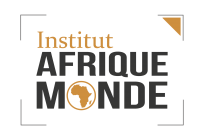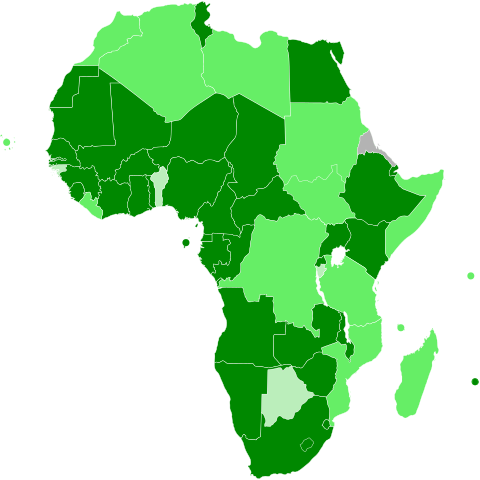In the previous posts, we have just gone through several topos and identified the situations from which the different religious traditions emerge, necessarily making comparisons. The thinking of Ancestorship obeys a plural logic and thus provides a solution to two difficulties intrinsic to religious pluralism: the relations between man and the powers of the invisible (ancestors and spirits) in the interest of the community, and the relations to other religious traditions.
At a time when part of humanity’s memory is disappearing every day under the blows of picks from the fundamentalists in Iraq and at a time when the heart of Bamako is being smashed by terrorism, this post by Emile Batamak offers a physico-theological demonstration of the existence of a Being First by the wonders of nature.
It highlights the historical relations of all religions with the societies in which they were born; these relations are confirmed by the limits of expansion of the great revealed religions, which have never been able to decisively encroach on their mutual domains.
In Africa, before the penetration of Islam and Christianity, each society developed its own system of interpretation of the world according to its own particular circumstances. Hence the very great variety of religions and gods referring to the diversity of the societies themselves. However, it should be noted that the universality of the problem of the survival of the individual and the group, and the objective similarities of the environment, within large geographical and climatic areas, imply, at a very general level, common characteristics.
The commensurability of religions is indeed a central problem for uncomplicated pluralism. Put into practice by an authentic effort to cross the topos (society’s own world view) and logos (intelligibility) of a society, they aim to understand its cultural matrix and thus approach the religious phenomenon. However, we can see in the genius of Ancestorship, a curious Janus, a hybrid monster, made of contradictions and chimera. Hence the relevance of our experimental programme on religious pluralism, which should enable us to develop an operational programme and toolbox for “deradicalization” and social cohesion in Africa, a way of revisiting and revitalizing the Charter of the Mande.
This will be the subject of our next conference, on March 16, in partnership with the Mandela Institute. It will be distinguished by the word that constitutes the backbone of Ancestorship.
The religious phenomenon in Black Africa: Ancestorship or ancestor worship
“The thinking of almost all ancient peoples is based on the idea of a universal system of correspondences in all domains: nature, the supernatural, the physiological and the human psychological,” says Mayerson in his book Psychological Functions and Works. Hence the sometimes unexpected connections between the subject and the object, man and nature, the individual and the collective. Hence the predominant place given to the communal act, which constitutes the essence of the religious fact, whose sacrifice, the most typical illustration of the universal interaction of forces, offers the purest example.
Secondly, a certain conception of man, the heart of creation (In Black Africa, it is man who is the absolute: “man appears as the fundamental value, as the first value, the one around which all values are built, the one around which all problems revolve”), shortened the universe, a principle of connection that ensures the continuity of the social phyllum (Louis-Vincent Thomas). For, let us not forget, this privileged being is only the docile instrument of the lineage, incarnated in a repeating time, the primordial time of which Mircea Eliade speaks as opposed to the phenomenal time lived.
Revelation of the Word
Through the above elements, we summarize the constitutive principles of African religions, which are cults that are returned to their ancestors. These “Ancestorships” are based on the revealed Word, which veiledly relates the creation of the world, the mythical events that precede men on earth, as well as those that trace the lives of the first men and the appearance of death. This Word is that of a single God, “creator or potter of the world” “who is not a being, that is to say an essence, because he is eternal”[A. Kagame]. It is among other attributes, as the philosopher Robert Ndebi Biya points out, “the one who originally fertilizes and generates. It is the very principle of the generation.
The cult of ancestors honours the soul of the one God, the first ancestor to die in general by metamorphosing into the form of an animal. The object of this cult is apparently twofold, but in reality unique in the minds of men: “they honour both the risen ancestor and the risen land which, from the beginning, nourished the original tribe, a land whose beneficial power they must reconcile. Its purpose is also to honor and promote to the living the souls of immortal ancestors who lived in mythical times before the appearance of death” (D. Zahan).
Universe of the Word
Ancestorïté is a universe of the Word that covers the complex domain of concepts, symbols that constitute the aspect of the visible and invisible face of the Word. At the heart of this universe of the Word, the initiate “strives to make the supernatural conveyed by this Word touch with his finger, yet at no time does it occur to him in his speech to leave society in its everyday life, made of birth, marriage, death, palaver, illness and medication sessions, exorcism, various rites. Quite simply, he wants us to understand all the concrete achievements of the Word. This Word is all the more alive as it concerns minerals, animals, plants, the global nature, then it is realized more by the experience of man than by the only project it reflects” (P. Dika Akwa). In general, the universe of the Word gathers the Word entrusted by the Creator God to the spirit gods in all its amplitude, “whoever would like to enter it must protect himself from the Word (Hop) and the[“light”], two prerequisites without which there is no communication with other realities”[id.].
Role of “fetishes” in the rituals of Ancestorship
The rituals of Ancestorship pay little attention to good spirits, because they obviously do good for man; they are more concerned about evil spirits, which is why more effort is put into convincing them to remain at peace. Hence the presence of what are arbitrarily called fetishes [“it is important, says the Abbot Mouth, that the fetish word fictitius, which means artificial, imaginary or fatum (destiny), be derived”]. While in reality Mr. Alapini tells us about the Nago of Benin, Oricha (fetish) means the one who deserves (or who suits, who is entitled or empowered to carry out an operation or action); who sees worship (or who is the adequate divinity, who is in his reserved domain, like the god of fertility who is unsuited to do anything else).For unlike the creative God who knows how to do only good, insensitive because all powerful, Oricha (or spirit gods) is the one who “sees worship”, who rebukes, who punishes. This redefinition of the fetish therefore invites us to see the rituals of Ancestorïté as sessions of religious exorcism whose effectiveness rests largely in the division of labour, between that of the creative God (the first immortal ancestor), a role that devolves upon him, and his descendants (spirit gods) to whom he entrusted the mission of healing, proliferating and repairing the world in all its components.
The function of languages in Ancestorship
Beyond the undoubtedly hermetic and esoteric aspects of the language of rituals, language is above all an element of acculturation and national unity. This is the reason why Ancestorship has worked to fix the languages that carry religious discourses. In the 20th century the expansion of these languages occurred accidentally thanks to the translation of the Bible into national languages following the example of the: Bulu, Ewe, Duala, Kinyarwanda, Bassa… where religious ideas express divine entities that find their origins in Ancestorship such as “Nyambe, Zambe or Nyama, the Supreme Being of the Bantu recognized as the Creator of the Universe, Generator of men and all other beings” (P. Bahoken). This inculturation through translation into African languages has also allowed the development of the African spiritual personality. These translations have also had the advantage of systematizing his religious and philosophical conceptions, which also relate the first contacts of the missionaries with Africans.
This modest introduction is an invitation to the (re)discovery of Ancestorship as a religious experience, a possibility of knowledge and mutual recognition. In order to achieve the renewal of religious epistemologies and the philosophy of culture; prerequisites for the symphonic composition of a true inter-religious dialogue, of a new hope.
Émile Moselly Batamack
Download the weekly ticket of March 9th in pdf format.
Download the banana note as an appendix as a symbol of the eternal renewal of life.
Do you wish to continue the reflection with the IAM, anxious to contribute to the emergence of African civilization in the contemporary world, and to contribute to the work of the “Religious Pluralism” workshop ? Contact us here.



